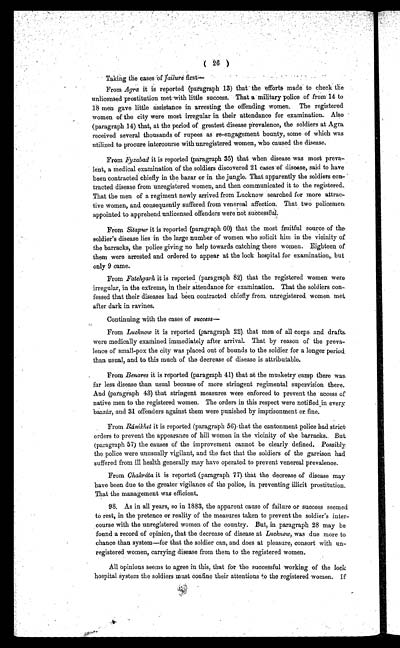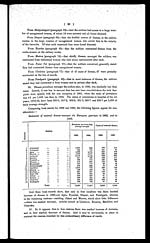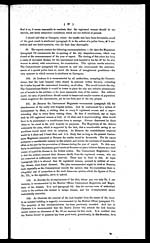Medicine - Institutions > Lock hospitals > Annual report on the working of the lock hospitals in the North-Western Provinces and Oudh > Tenth annual report of the working of the lock hospitals in the North-Western Provinces and Oudh for the year 1883
(372) Page 26
Download files
Individual page:
Thumbnail gallery: Grid view | List view

( 26 )
Taking the cases of failure first—
From Agra it is reported (paragraph 13) that the efforts made to check the
unlicensed prostitution met with little success. That a military police of, from 14 to
18 men gave little assistance in arresting the offending women. The registered
women of the city were most irregular in their attendance for examination. Also
(paragraph 14) that, at the period of greatest disease prevalence, the soldiers at Agra
received several thousands of rupees as re-engagement bounty, some of which was
utilized to procure intercourse with unregistered women, who caused the disease.
From Fyzabad it is reported (paragraph 35) that when disease was most preva-
lent, a medical examination of the soldiers discovered 21 cases of disease, said to have
been contracted chiefly in the bazar or in the jungle. That apparently the soldiers con-
tracted disease from unregistered women, and then communicated it to the registered
That the men of a regiment newly arrived from Lucknow searched for more attrac-
tive women, and consequently suffered from venereal affection. That two policemen
appointed to apprehend unlicensed offenders were not successful.
From Sitapur it is reported (paragraph 60) that the most fruitful source of the
soldier's disease lies in the large number of women who solicit him in the vicinity of
the barracks, the police giving no help towards catching these women. Eighteen of
them were arrested and ordered to appear at the lock hospital for examination, but
only 9 came.
From Fatehgarh it is reported (paragraph 82) that the registered women were
irregular, in the extreme, in their attendance for examination. That the soldiers con-
fessed that their diseases had been contracted chiefly from unregistered, women met.
after dark in ravines.
Continuing with the cases of success—
From Lucknow it is reported (paragraph 22) that men of all corps. and drafts.
were medically examined immediately after arrival. That by reason of the preva-
lence of small-pox the city was placed out of bounds to the soldier. for a longer: period
than usual, and to this much of the decrease of disease is attributable.
From Benares it is reported (paragraph 41) that at the musketry camp there was
far less disease than usual because of more stringent regimental supervision there.
And (paragraph 43) that stringent measures were enforced to prevent the access of
native men to the registered women. The orders in this respect were notified in every
baazár, and 31 offenders against them were punished by imprisonment or, fine.
From Ránikhet it is reported (paragraph 56) that the cantonment police had strict
orders to prevent the appearance of hill women in the vicinity of the barracks. But
(paragraph 57) the causes of the improvement cannot be clearly defined. Possibly
the police were unusually vigilant, and the fact that the soldiers of the garrison had
suffered from ill health generally may have operated to prevent venereal prevalence.
From Chakráta it is reported (paragraph 77) that the decrease of disease may
have been due to the greater vigilance of the police, in preventing illicit prostitution.
That the management was efficient.
98. As in all years, so in 1883, the apparent cause of failure or success seemed
to rest, in the pretence or reality of the measures taken to prevent the soldier's inter-
course with the unregistered women of the country. But, in paragraph 28 may be
found a record of opinion, that the decrease of disease at Lucknow, was due more to
chance than system—for that the soldier can, and does at pleasure, consort with un-
registered women, carrying disease from them to the registered women.
All opinions seems to agree in this, that for the successful working of the lock
hospital system the soldiers must Confine their attentions to the registered women. If
Set display mode to: Large image | Zoom image | Transcription
Images and transcriptions on this page, including medium image downloads, may be used under the Creative Commons Attribution 4.0 International Licence unless otherwise stated. ![]()
| Permanent URL | https://digital.nls.uk/75111987 |
|---|




